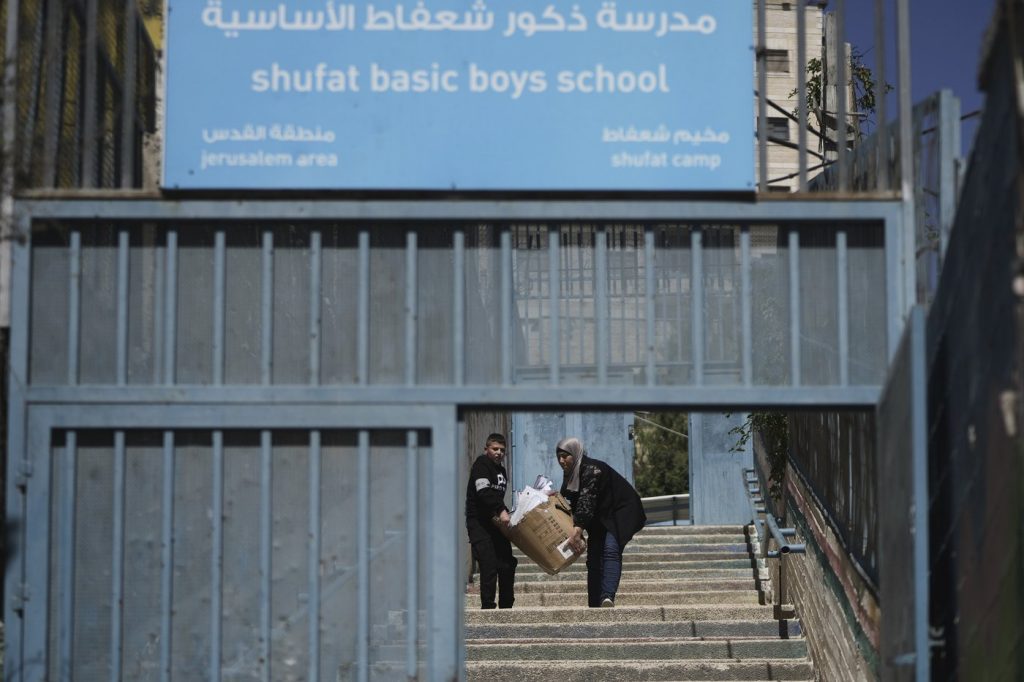JERUSALEM (AP) — On Thursday, Israel announced the permanent closure of six United Nations schools located in east Jerusalem, an action that has resulted in the early dismissal of approximately 800 Palestinian students and has raised concerns about their educational futures. This decision follows a directive given last month by heavily armed Israeli police and officials from the Education Ministry, which mandated the schools to cease operations within a 30-day period that concluded on Wednesday.
The six schools in question are operated by the United Nations Relief and Works Agency for Palestine Refugees in the Near East (UNRWA), which also manages educational facilities in the Israeli-occupied West Bank that remain functional despite the closures in Jerusalem. The closure orders come after Israel implemented a ban on UNRWA’s activities within its territory earlier this year, amid a heightened campaign against the agency following the October 7, 2023, attacks by Hamas on Israel that led to escalated violence in Gaza.
Israeli officials have accused UNRWA’s schools of propagating antisemitic content and fostering anti-Israel sentiments; however, UNRWA has denied these allegations. This tension represents a culmination of a long-standing dispute over the agency’s role and operations related to Palestinian refugees.
UNRWA is a vital provider of education and health services for Palestinian refugees in east Jerusalem, a territory that Israel captured during the 1967 Middle East war and subsequently annexed, declaring it as part of its unified capital. The Israeli Ministry of Education has stated that it plans to relocate affected students to other schools in Jerusalem, yet there are significant concerns regarding safety and accessibility. Parents, teachers, and school administrators have voiced apprehensions about the potential consequences, noting that children may face daily challenges navigating crowded and often dangerous checkpoints, with many students lacking the necessary permits for passage.
In a prior statement, the Israeli Ministry of Education justified the closures by asserting that the schools were functioning without the required operational licenses. In contrast, UNRWA has pledged to maintain the schools’ operations for as long as possible, indicating their commitment to the affected students and communities.
This situation highlights the ongoing complexities of the Israeli-Palestinian conflict, particularly the impact of political decisions on the education and daily lives of those affected. As the closure of these schools unfolds, the long-term educational prospects for Palestinian students in east Jerusalem remain uncertain, prompting calls for a reconsideration of the policies affecting their access to education.










